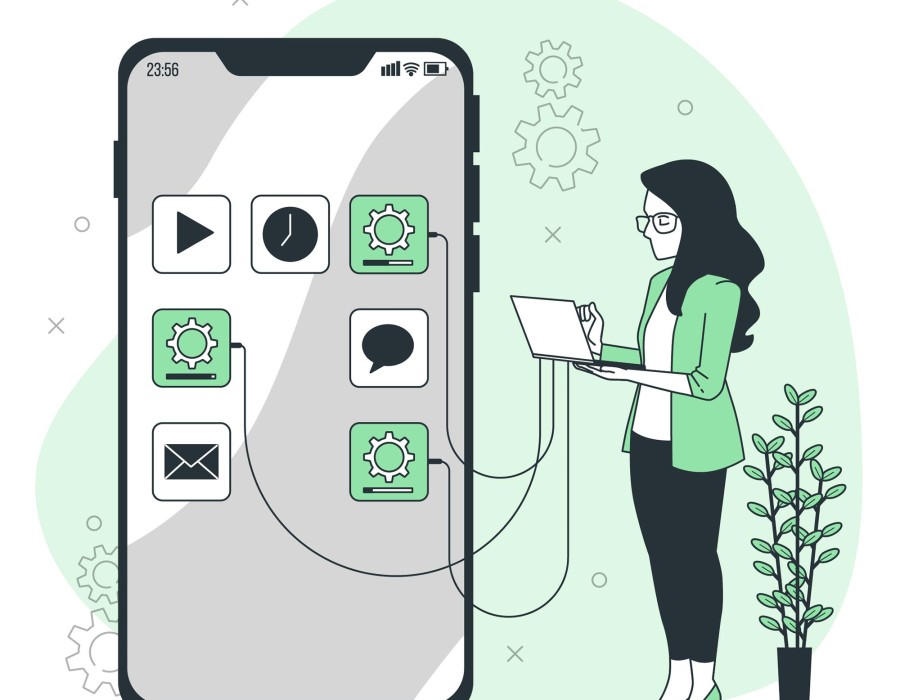In today's fast-paced digital landscape, staying ahead in the app development game requires more than just innovative ideas. It demands a dynamic approach that adapts to changing market needs and user preferences swiftly. This is where Agile methodologies come into play, revolutionizing the way top app development company operate and deliver exceptional products.
Understanding Agile Methodologies
Agile methodologies are a set of principles and practices designed to enhance collaboration, flexibility, and customer satisfaction in software development projects. Unlike traditional waterfall methods, Agile promotes iterative development, allowing teams to break down projects into smaller, manageable tasks called sprints. This iterative approach fosters continuous improvement and enables teams to respond effectively to evolving requirements throughout the development process.
Key Principles of Agile Methodologies
1. Customer Collaboration over Contract Negotiation: Agile prioritizes customer involvement throughout the development process. Top app development companies understand the importance of continuous feedback and collaboration to ensure that the final product meets the client's expectations.
2. Adaptability to Change: Agile embraces change as a natural part of the development process. Instead of rigidly following a predefined plan, teams remain flexible and responsive to evolving requirements, market trends, and user feedback.
3. Iterative Development: Agile promotes incremental development, allowing teams to deliver working software in short iterations. This approach enables early and continuous delivery of valuable features, reducing the time-to-market and enhancing product adaptability.
4. Cross-functional Teams: Agile encourages cross-functional collaboration, bringing together developers, designers, testers, and stakeholders to work closely throughout the project. This interdisciplinary approach fosters innovation, efficiency, and collective ownership of project goals.
Implementing Agile Methodologies in Top App Development Companies
1. Continuous Communication: Effective communication lies at the heart of Agile methodologies. Top app development companies prioritize open and transparent communication channels to ensure that all team members are aligned with project goals, timelines, and expectations.
2. Iterative Planning and Delivery: Agile teams break down complex projects into smaller, manageable tasks and prioritize them based on customer value and project requirements. By focusing on iterative planning and delivery, these companies can deliver high-quality software incrementally, ensuring rapid feedback and adaptability.
3. Embracing Change: Change is inevitable in the dynamic world of app development. Top companies embrace change by remaining flexible, responsive, and adaptable to evolving market trends, technological advancements, and client feedback. This proactive approach enables them to deliver products that exceed customer expectations.
4. Empowering Cross-functional Teams: Successful implementation of Agile methodologies requires empowered and autonomous teams. Top app development companies foster a culture of collaboration, trust, and accountability, empowering cross-functional teams to make informed decisions, experiment with new ideas, and take ownership of project outcomes.
5. Continuous Improvement: Agile is not just a methodology; it's a mindset. Top companies prioritize continuous improvement by regularly reflecting on their processes, identifying areas for enhancement, and implementing iterative changes to optimize efficiency, productivity, and product quality.
Conclusion
In an increasingly competitive app development landscape, Agile methodologies have emerged as a cornerstone of success for top app development companies. By embracing principles such as customer collaboration, adaptability, iterative development, and cross-functional teamwork, these companies navigate the complexities of app development with agility and finesse. As the digital ecosystem continues to evolve, Agile methodologies will remain indispensable for driving innovation, delivering value, and staying ahead of the curve in the dynamic world of app development.





Comments